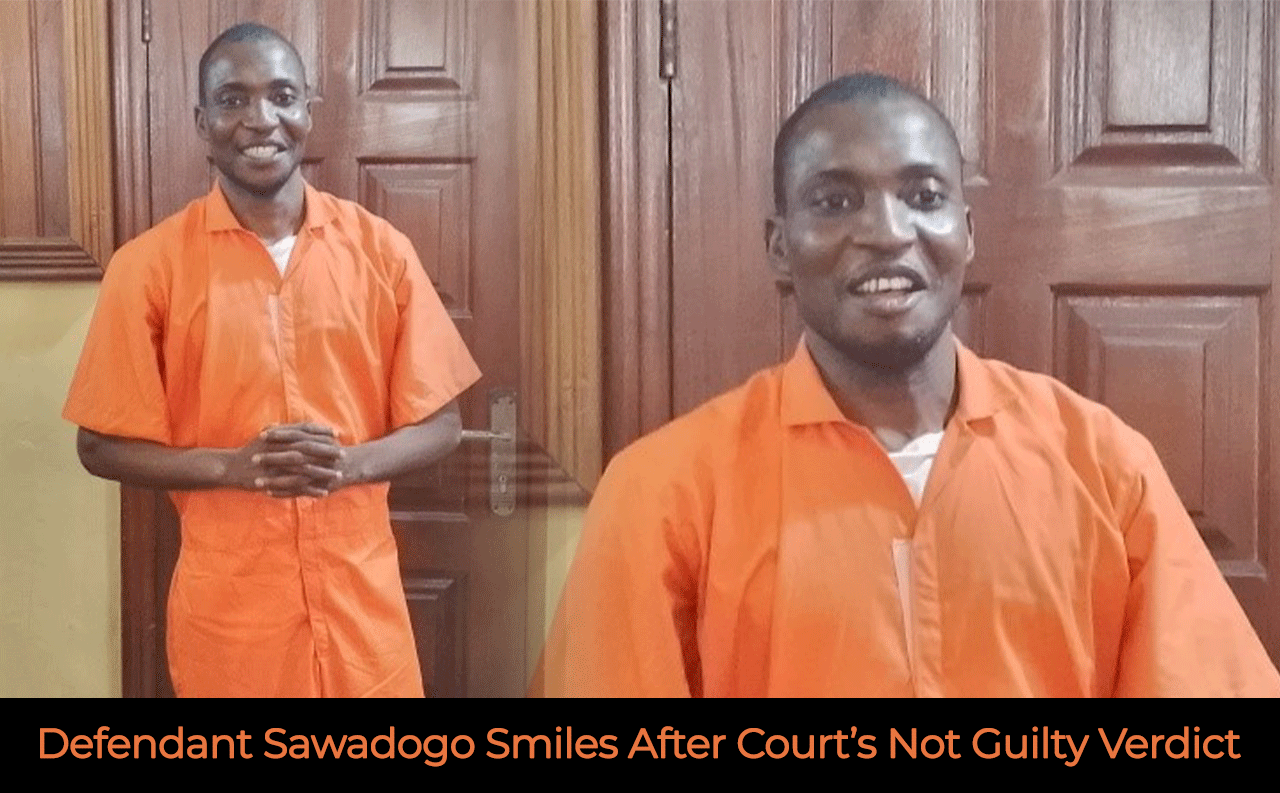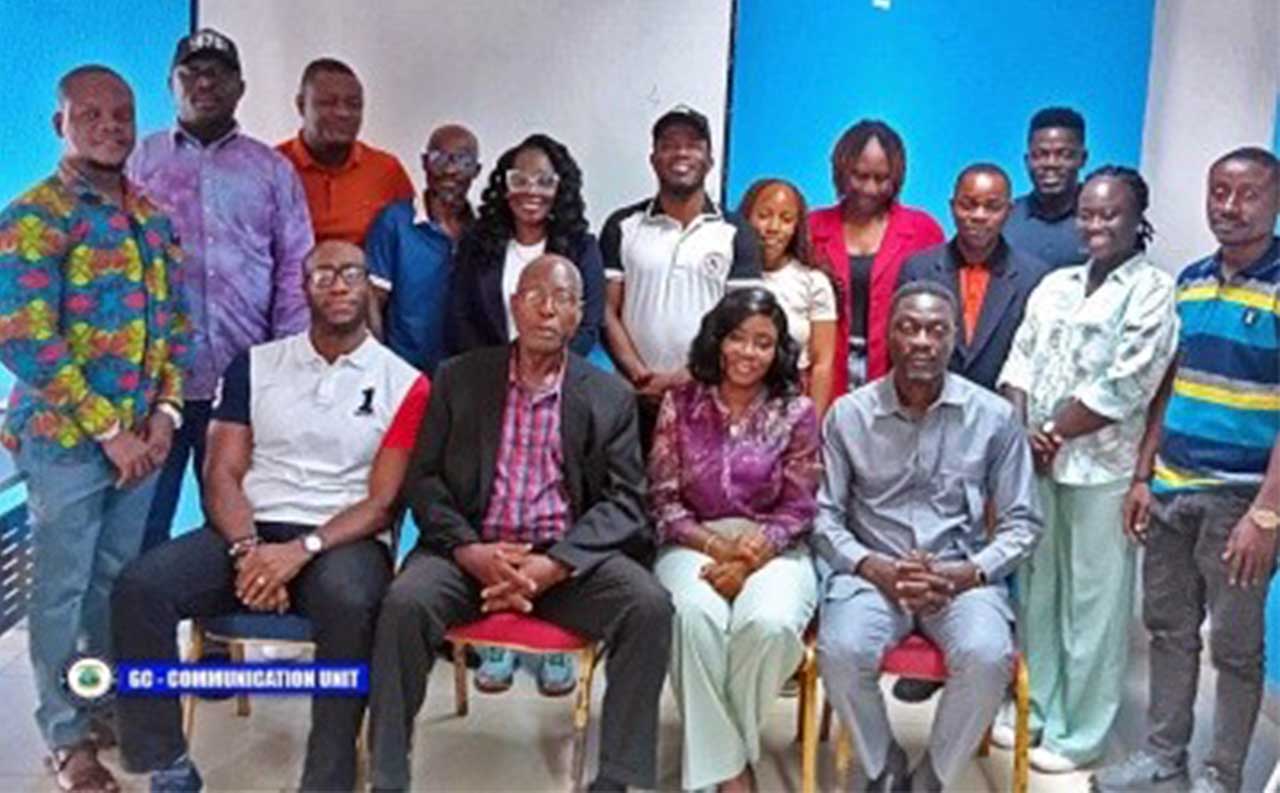Liberia could experience a major setback in its fight against human trafficking as the Government of Liberia has lost another landmark trafficking case against a Q-Net staff member.
It can be recalled that after over 30 minutes of deliberation, the Jury of Criminal Court “A” at the Temple of Justice in Monrovia On Monday October 21, 2024, brought down a not guilty verdict in favor of the defendant identified as Sawadogo for multiple charges ranging from Trafficking In Person, Criminal Conspiracy, Theft of Property and Kidnapping due to the lack of sufficient evidence produced by state lawyers.
Eleven of the twelve jurors agreed that the charges levied against the defendant could not be proven by prosecuting attorneys, freeing him of all of the allegations levied.
Defendant Sawadogo was indicted for allegedly inducing and influencing 11 Sierra Leoneans to falsely believe that there are names and places for travel to Canada and elsewhere outside of Sierra Leone and Liberia.
The indictment alleged that on the basis of the deceptive acts and words by Sawadogo, the victims were charged by the defendant to pay US$11,000 for onward processing of their travelling documents at which time the amount was paid at the Kebbeh Q-Net Office.
The indictment alleged that when the victims arrived at the Q-Ne, their travelling documents were seized by the defendant and conspirators and the victims were kept in an isolated there they remained for several months until the matter was reported to the Liberia National Police (LNP) which arrested the defendant at the Barnesville Q-Net Office while the rest escaped and are on the run.
But taking the witness stand, Sawadogo denied the allegation and wondered why he was brought to the court.
“I came to Liberia to do network marketing with Q-Net and I started this activity in Ivory Coast with my brother, who introduced this business plan which is done online. So when I arrived in Liberia, I first stopped at Ganta, Nimba County, and later came to Monrovia; I met a lot of people involved in Q-Net business,” said defendant Sawadogo.
According to the defendant, some of the offices are located in Barnesville, Gardnesville Supermarket, Red-Light, 72nd, Duport Road and Old Road, saying he knew a lot of people and his objective was to share his experience on Q-Net.
Defendant Sawadogo: “In Q-Net there is no travelling opportunity; I am a stranger and therefore I do not have that right to open a Q-Net Office in Liberia, not to even talk about being the head.”
The loss of this case could further jeopardize Liberia’s chances to benefit from international funding allocated to countries who achieved a certain benchmark in the fight against human trafficking.
In the US 2023 Trafficking in Persons Report, Liberia obtained a “Tier 2” as the Government of Liberia did not fully meet the minimum standards for the elimination of trafficking but is making significant efforts to do so.
The government demonstrated overall increasing efforts compared with the previous reporting period, considering the impact of the COVID-19 pandemic, if any, on its anti-trafficking capacity; therefore Liberia remained on Tier 2. These efforts included prosecuting and convicting an official complicit in human trafficking and identifying more victims and referring them to services. However, the government did not meet the minimum standards in several key areas. Investigations decreased and law enforcement officials continued to lack adequate resources and understanding of trafficking to effectively investigate and prosecute trafficking crimes. Victim services, especially shelter, remained insufficient.
The report recommended the following: that Government Expands victim services – particularly for victims outside the capital, males, and victims requiring long-term care; increase efforts to investigate and prosecute trafficking cases, including those involving internal trafficking, sex trafficking, related criminal networks, and officials accused of complicity; train labor inspectors and social workers on standard victim identification procedures and the national referral mechanism, as well as Improve collaboration between anti-trafficking police units, immigration, labor, and judicial authorities.
Other recommendations were: Increase financial or in-kind support to NGOs that support trafficking victims; train law enforcement and judicial officials on identifying, investigating, and prosecuting trafficking cases under the revised 2021 anti-trafficking law; increase labor inspections in the informal sector and mining regions to improve identification of trafficking cases, including child forced labor; increase efforts to raise public awareness of human trafficking, including internal trafficking; allocate financial and in-kind resources to the national anti-trafficking task force, and screen foreign workers, including Cuban overseas workers, for forced labor indicators and refer identified forced labor victims to appropriate services.
By T.Q. Lula Jaurey



